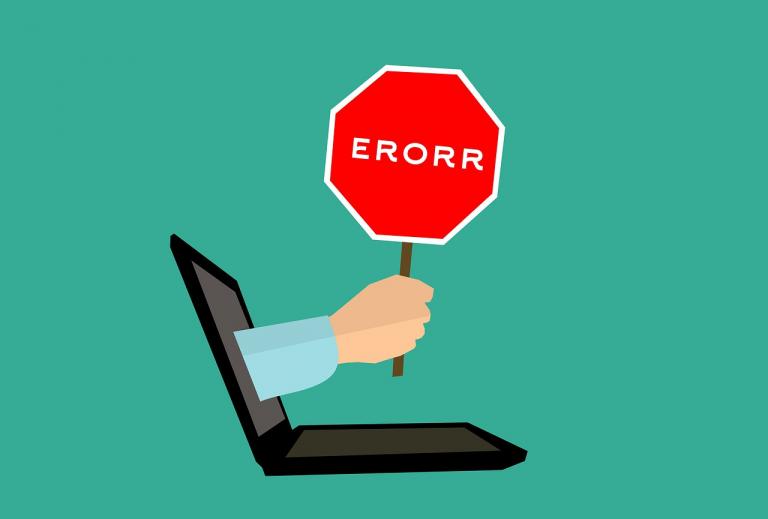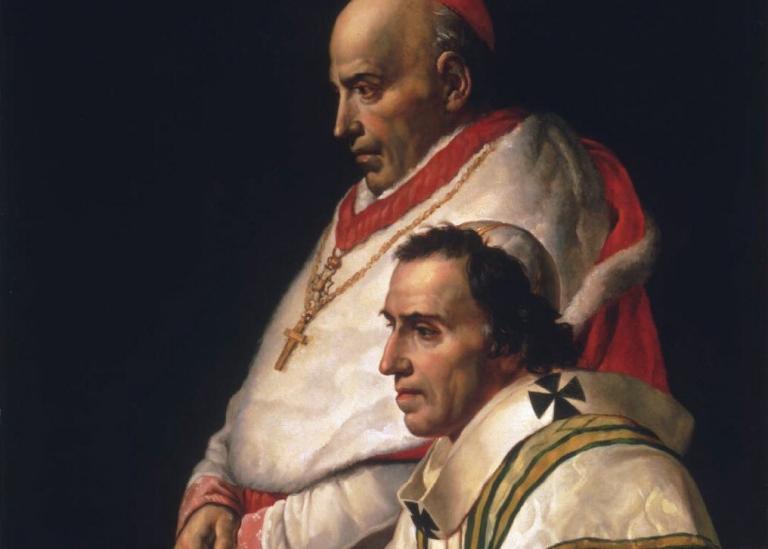
There are two senses in which one may speak of “God’s will.” One may speak of God’s perfect will—that is, what God specifically ordains. For example, the fact that the pope has supreme teaching authority in the Church is God’s perfect will. But one may also speak of God’s permissive will—that is, what God does not ordain but permits. The fact that some people would resist the pope’s teaching authority and there would be Pope Francis Derangement Syndrome is part of God’s will in this latter sense. Whatever happens is, therefore, God’s will. God willed this blog post, if only because he did not stop me from writing it. He may have struck me down with a heart attack today in order to prevent me from speaking out against his chosen mouthpiece Fake Site News, but free will matters to him, so I go on writing. God willed the Abu Dhabi text, and God willed the FaithfulCatholic™ freakout about it. God willed the pope to be accused of heresy. Whatever happens, God wills. And this is not Calvinism if you understand the distinction between God’s perfect will and God’s permissive will.
Here is the full text of the Abu Dhabi statement, and here is the part that has caused such sweatstorms and couch-fainting among FaithfulCatholics™:
Freedom is a right of every person: each individual enjoys the freedom of belief, thought, expression and action. The pluralism and the diversity of religions, colour, sex, race and language are willed by God in His wisdom, through which He created human beings. This divine wisdom is the source from which the right to freedom of belief and the freedom to be different derives. Therefore, the fact that people are forced to adhere to a certain religion or culture must be rejected, as too the imposition of a cultural way of life that others do not accept.
“Freedom is a right of every person.” In other words, the very context of the discussion is about free will. We must read the surrounding text, dear reader—not just the parts FaitnhfulCatholics™ cherry pick in order to justify their sweats. God wills (passively) a diversity of religions because he wills (perfectly) human free will first. Thus one may not impose religious belief on others. That’s the sense of what the man said.
No Catholic ought be troubled by this. Even Fr. Z says that we must read the Abu Dhabi statement in light of the distinction I made in my lead:
When we speak of God’s will we make distinctions. God has an “active or positive will” and a “permissive will”. God’s “active will” concerns that which is good, true and beautiful. On the other hand, God has a “permissive will” by which He allows that things will take place that are not in accord with the order He established.
That’s Fr. Z, dear reader. And back on March 8, Bishop Athanasius Schneider, beloved of FaithfulCatholics™, said that Pope Francis had clarified. Let’s listen to what the man said. The man said that the reference was to God’s permissive will. “The bishop told LifeSiteNews that he had a direct exchange with Pope Francis.”
(Oh, he said this to Fake Site, did he? Indeed he did. Fake Site trumpeted it as a “win.”)
“You can say,” the pope said, “that the phrase in question on the diversity of religions means the permissive will of God.”
That’s what the man said.
But no matter what the man said then, Bishop Schneider tells Fake Site News now that Pope Francis needs to clarify. (Well, he’s not saying “clarify” this time; he’s saying “correct.”) The pope needs to correct the statement, because it represents “another gospel.” And if anyone preaches to you another gospel, let him be accursed! Schneider says this about the pope.
But wait. I thought Pope Francis had clarified. If the pope has clarified, if he has said the reference is to God’s permissive will, what does he need to correct? Can someone explain? Can someone clarify this? Anyone? Buehler?
And Fake Site, in this article by heresy accuser Paolo Pasqualucci, says that the bishop’s new words “lend weight to heresy accusations.” According to this article, the pope’s clarification actually contradicts the Abu Dhabi statement.
So let me see if I understand all this. Schneider asks Francis to clarify the words at Abu Dhabi about God’s will. The pope says: Sure thing, Athanasius. I’m always here to clarify. This document means God’s permissive will. Athanasius says this to Fake Site, and they in turn characterize it as a “win.” But now, the clarification is not enough, because it somehow contradicts Abu Dhabi, and we’re back to Pope Francis preaching another gospel. We need a correction now!
So what we have here—do I understand this right?—is a case where no clarification could possibly be enough because Schneider has already decided before any of it that the document is heretical. If Pope Francis says, “No, I meant this,” Schneider just says, “Oh, then it’s a contradiction.” [Edited to add: A reader points out that Pope Francis has already clarified all this publicly.]
This is why, dear reader, I insist that the dubia are a ruse. If Pope Francis were to answer the dubia, if he were to clarify, Burke and company could just say, “Oh, then you’re contradicting yourself.” Because they’ve already decided Amoris Laetitia is heresy, and no clarification, not even from the pope himself, could possibly change their mind on that.
So when it comes to schism, people will find a way to go, no matter what the man says.
























